「slumbers」について僕がヒロシさんから聞いたいくつかのこと
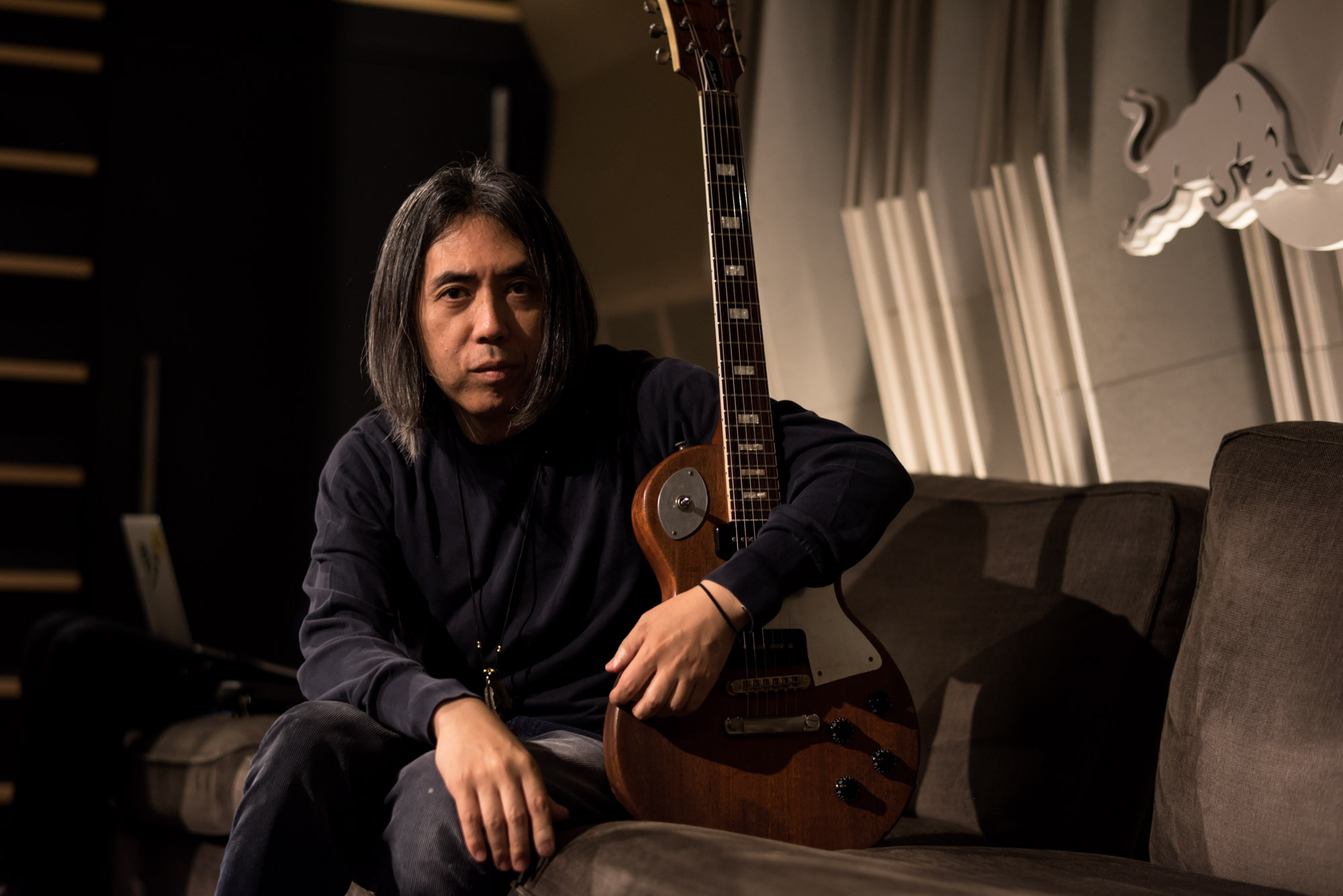
藤原ヒロシさんがレコーディングをしていると聞いて、僕が渋谷にあるRedBullのスタジオを訪れる機会を得たのは、今年の夏のはじまりのことだ。ニュー・アルバムをレコーディングしているというのはうれしい驚きだったが、「年末までにはリリースしたいんだ。クリスマス・ソングも書いたから、絶対出さなきゃね」という言葉には正直、驚かされた。相変わらず世界の都市を行ったり来たりしながら多忙な時間を過ごすヒロシさんが、その合間をぬってスタジオに入る時間を見つけるのは容易ではないように思えたからだ。
有言実行。アルバムは知らない間に完成していて、11月のある日、ずしんと送られてきた。タイトルには『slumbers』と書かれている。マジックのようだ。
2017年は、藤原ヒロシにとって、そしてフォロワーにとってもにぎやかな一年だったように思える。突然発表された Louis Vuitton と fragment design とのコレクションに驚かされ、夏には京都、金沢、名古屋、東京をめぐるライヴツアーもあった。そしてしめくくりとばかりに届けられるのがこのニューアルバム『slumbers』だ。
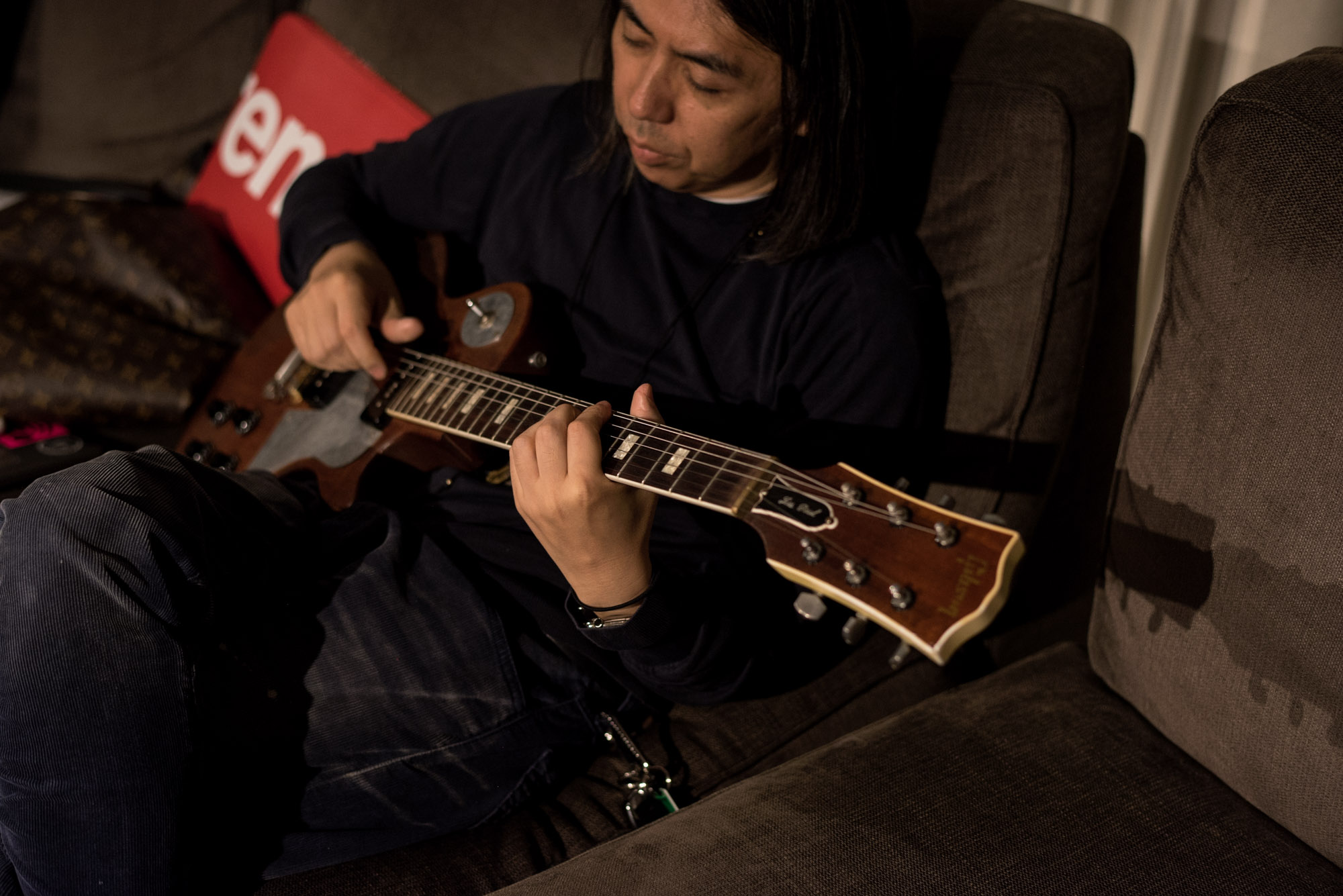
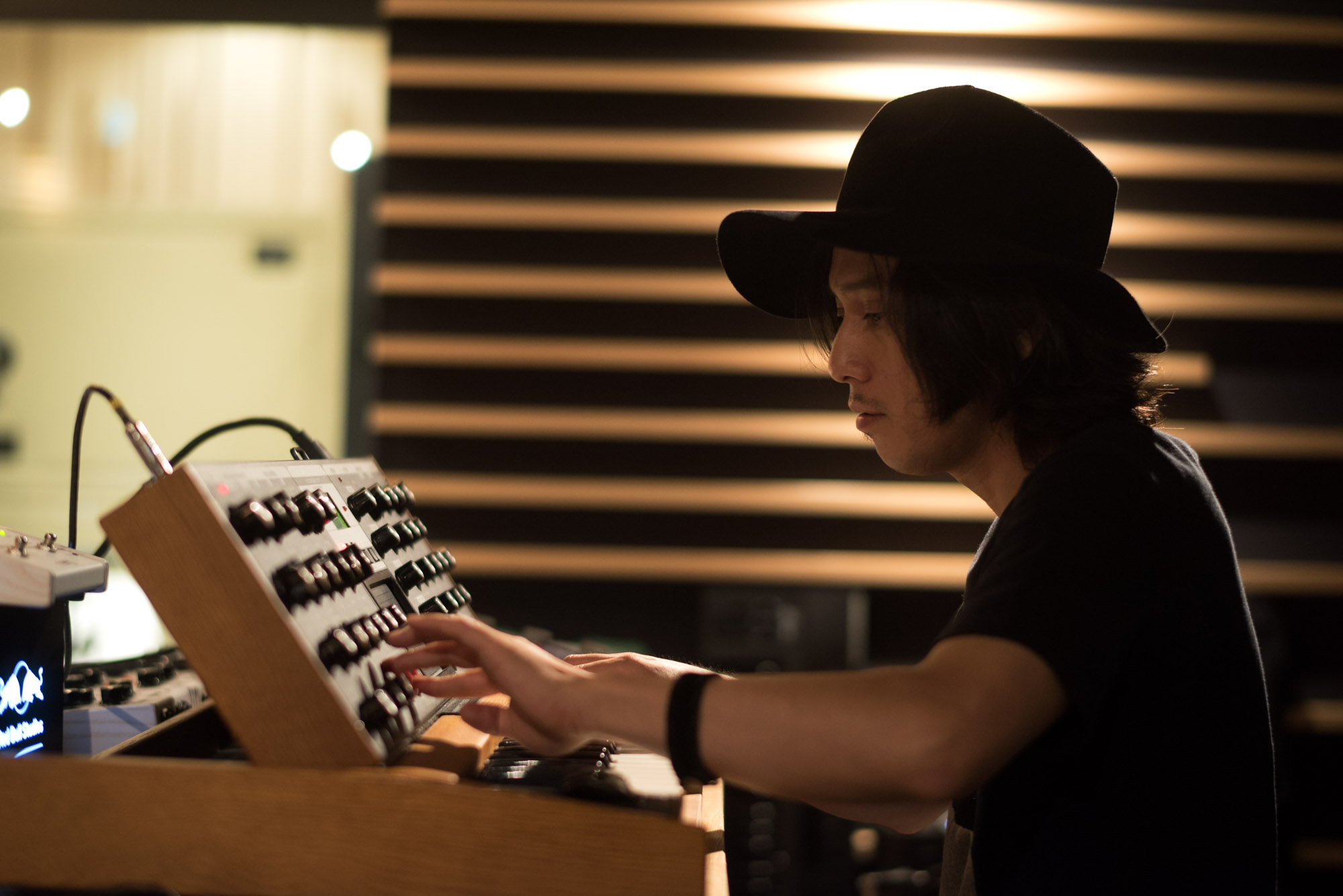
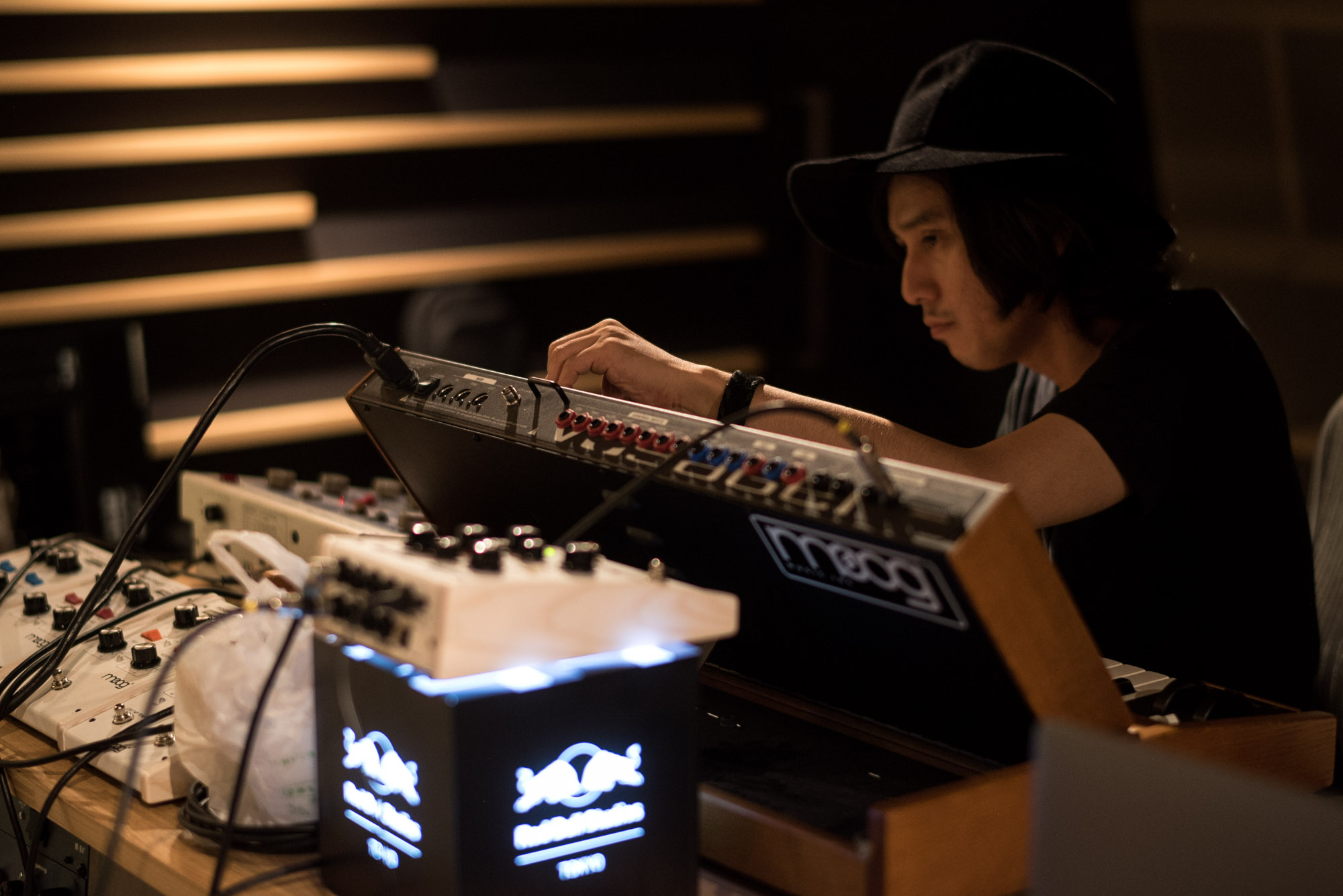
「曲の断片はずっと昔から書いていたものもある。スタジオに入ってからは早かった」
いくつかの新曲は夏のステージでもいち早く披露されていたものの、渡辺シュンスケ氏によるアレンジで、ぐっと甘くコーティングされ、浮遊感のあるポップソングに生まれ変わっている。
プロデューサー、渡辺シュンスケ氏とヒロシさんの出会いは、YO-KINGとのデュオ AOEQ の際に彼がキーボードとして参加したのがきっかけだったという。その後、前作『Manners』の中の一曲「Colour」ではアレンジを担当。彼のメランコリックな雰囲気がとても気に入っていたというヒロシさんが、今度はアルバム、トータルでプロデューサーとして迎えるに至ったとのことだ。
「このアルバムの成功の一番の要因は、最初に僕がシュンスケくんをプロデューサーに選んだこと」と自負するほど。
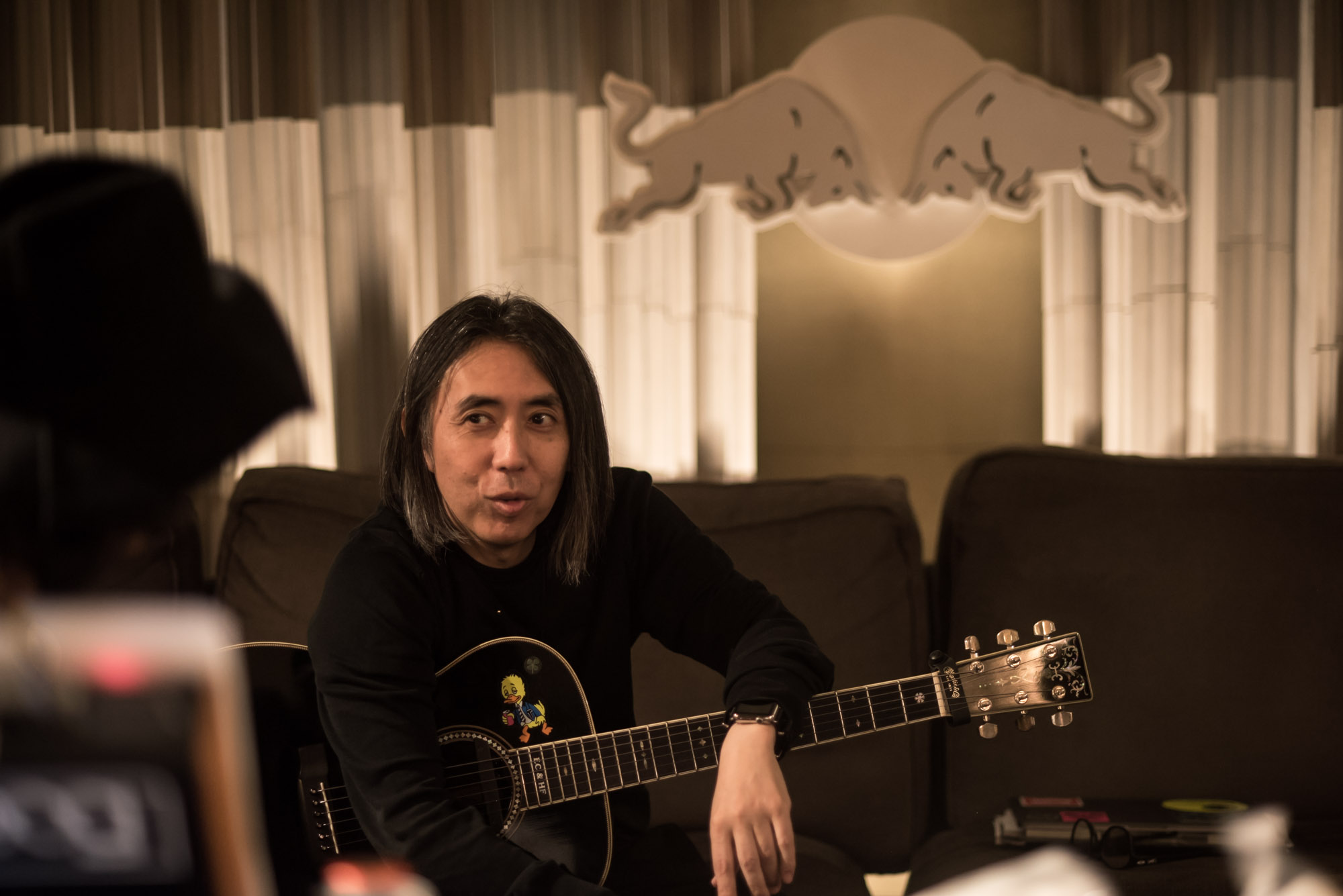
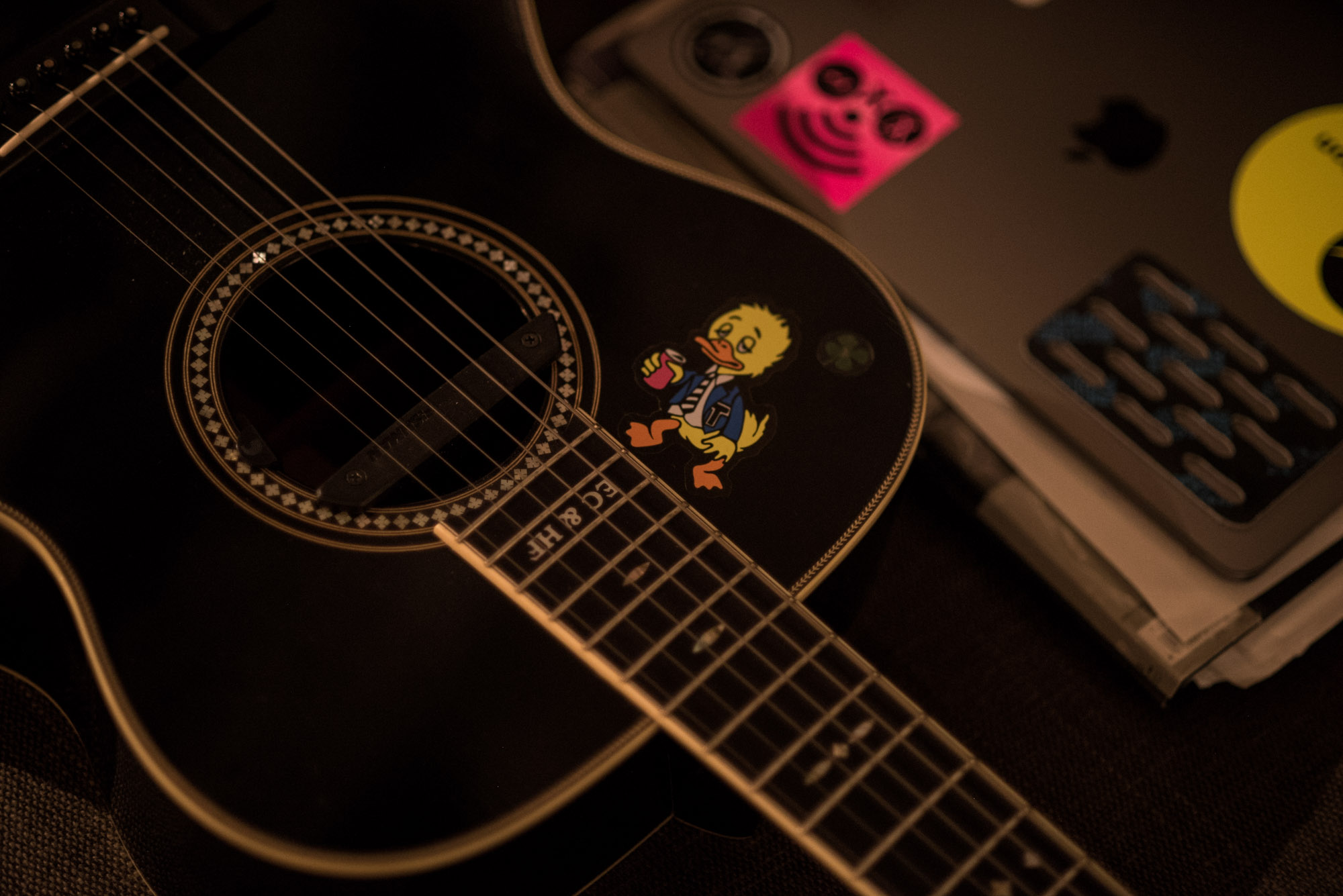
オープニングを飾るのは「WALKING MEN」そのメロウなムードに、まさかゾンビの歌とは思いもしなかった。
「YUKI ちゃんに歌詞を書いてもらったのがよかった。アルバムの冒頭の一番最初のフレーズで『Hello、ますますご機嫌さ』なんて、絶対に僕からは出ない言葉だから」。
また、ロシアから無限の宇宙に打ち上げられたライカ犬のエピソードを歌詞にしたのは「彼女の言葉のセンスは天才的」と絶賛する平野紗季子さん。〝未来のない〟永遠の時間を歌ったセンチメンタルな詞はとても印象的だ。
この曲に限らず、このアルバムの歌詞には過去から未来、時間の流れを感じさせるものが多いのは気のせいだろうか。
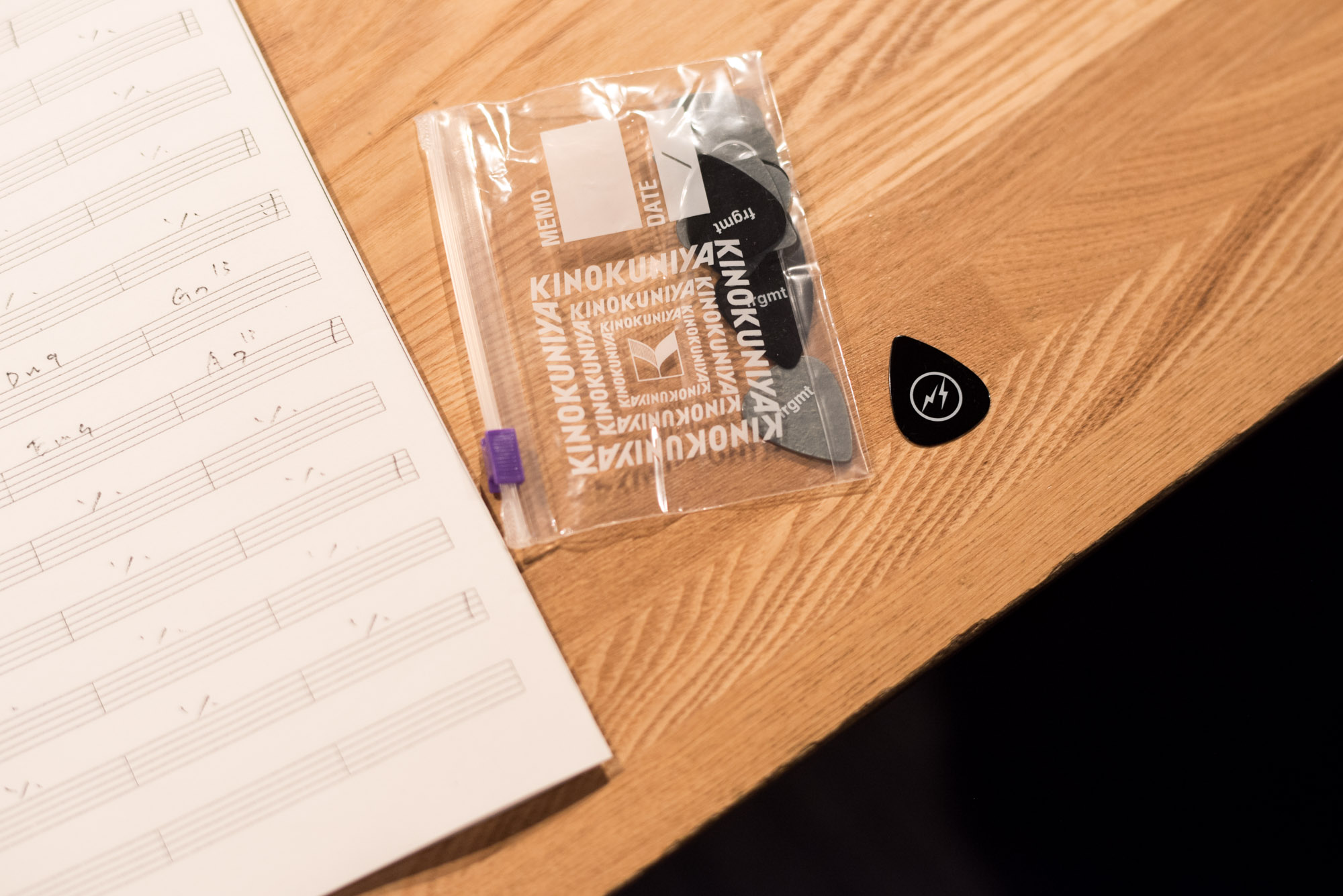
ちょっとロマンティックすぎたかもという件のクリスマスソングには「GINZA」というタイトルがつけられている。
「もともとAOEQのときに僕が書いていたモータウンぽい曲があって、YO-KINGのアドバイスでクリスマスの歌詞をつけたんだ」。
<過去へつながるトンネル><今はない映画館>という言葉に反射してしまう少し昔の銀座を知るあなたの想像のその場所は間違っていないはずで、変わりゆく街、銀座といえばソニービルの地下のTHE PARK・ING GINZAが閉店したのも今年の3月のことだったことを思い出す。
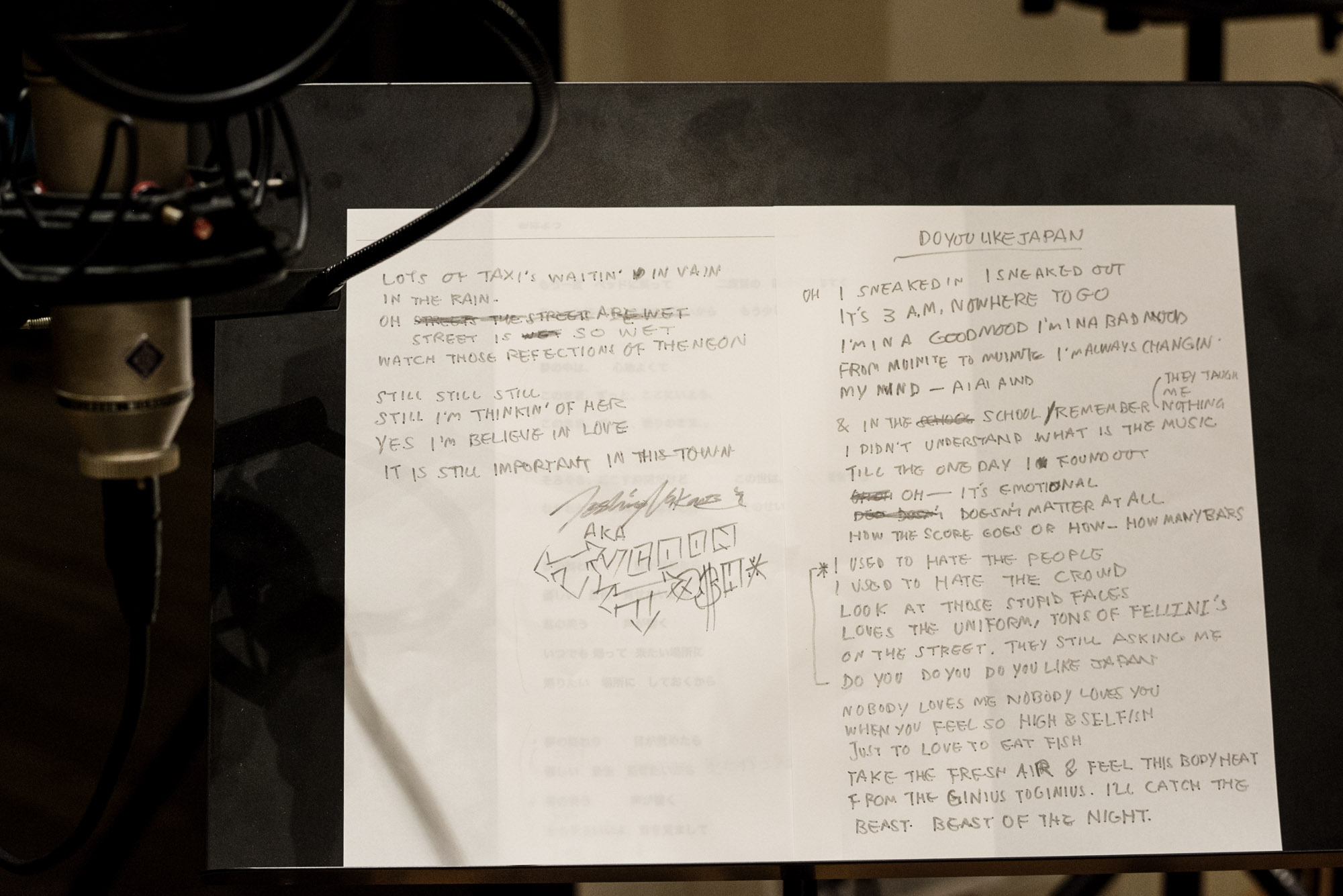
最初にレコーディングスタジオをのぞいたその夏の日の午後に、ヒロシさんが歌を入れていた曲が中西俊夫さんのユニットMELONの「Do You Like Japan ?」だった。僕はカメラを持ってブースに足を踏み入れ、ヒロシさんの背後に回ったときにハッとせずにはいられなかった。ヒロシさんが目を落としている譜面台に載せていた歌詞は手書きのもので、そこにはTYCOON TO$Hのサインが入っていたのだから。
ヒロシさんが ’80年代から交流をもち「永遠のアイドルみたいな存在」と慕っていた中西俊夫さんが病床に臥し、急逝されたのはこの2月のこと。二人の最後となってしまったエピソードをこう話してくれた。
「1年くらい前かな、何かのインタビューでトシちゃん(中西俊夫)が『ヒロシに『Do you like Japan ?』をカヴァーしてもらいたい』って発言してたのをデッツ(松田)が見つけてきた。それでカヴァーしようと思っていた矢先にトシちゃんは入院しちゃって。お見舞いに行ったときにその話をしたら、歌詞分かる?ってベッドの中でさらさらと歌詞を書いてくれた。ちょうど亡くなる一週間ほど前のこと、本当に最期のタイミングで、すごくジーンときたモーメンツだったのを覚えている」。
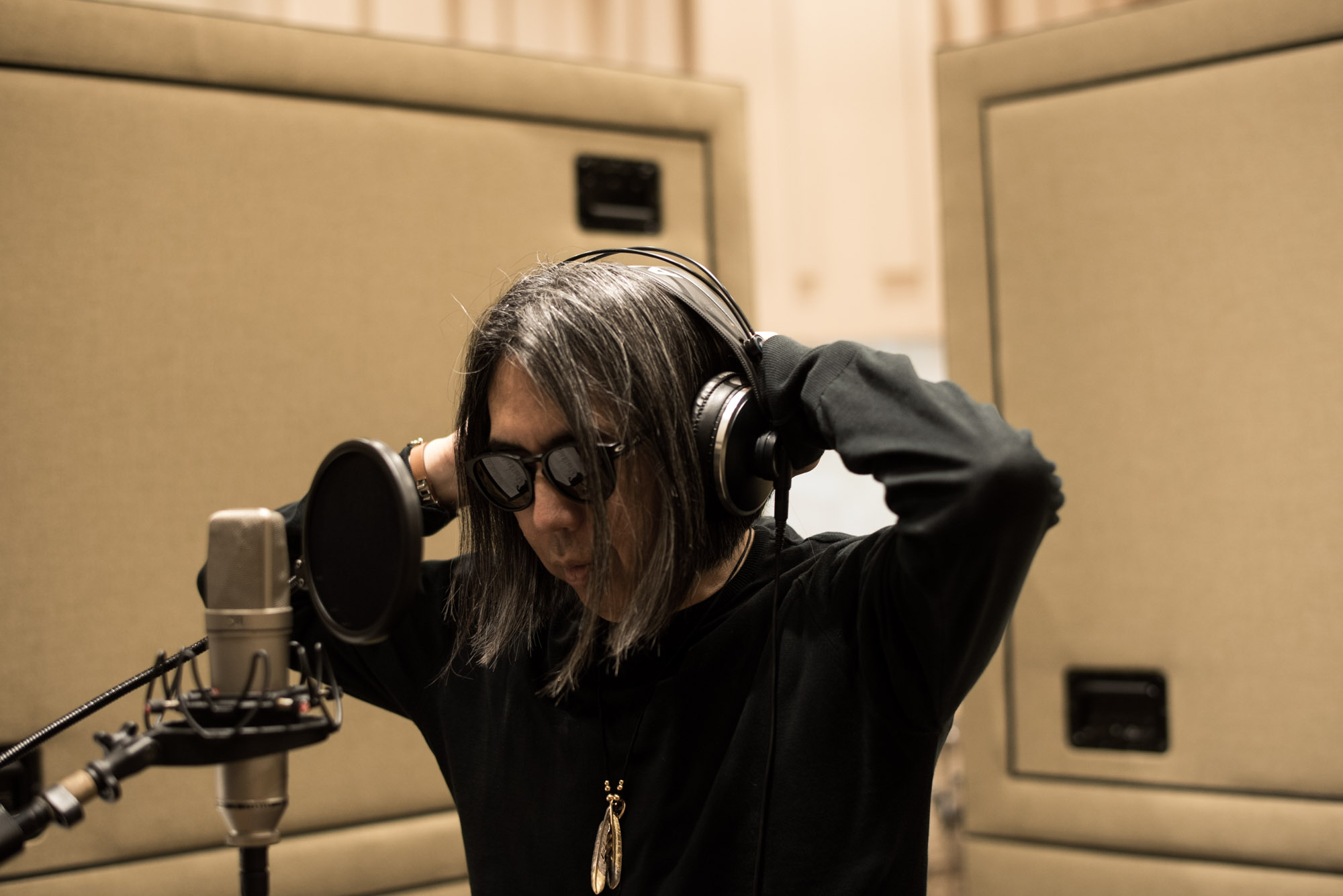
また別の午後にスタジオを訪れた際にも、ヒロシさんはブースの中にいて歌入れをしていた。ひたすらメロウなトラックに、ファルセットの高い歌を繰り返している。ヒロシさん自身が綴ったその言葉の表面だけを何度も追いかけて、〝眠って夢を見ている君〟へのラヴソングのようにしか聞こえていなかった自分のことを恥じたのは、後にこう聞かされてのことだった。
「あの歌はね、実は朝本(浩文)くんについての曲。彼が(事故で)意識を失った後、彼のためのベネフィット・イベントのようなライヴがあって、そのときに書いた曲。朝本くんは、ずっと病院で寝てて、結局起きないまま亡くなってしまったんだけど、彼のお見舞いに行ったときもショックだったのを覚えている。僕が訪ねるときはいつも誰もいなくて、彼は本当にただただ眠っている感じで、今にも起きるんじゃないかな、て気がした。それで、もうそろそろ目が覚めてもいいんじゃないの?ていう気持で歌詞を書いた。もしかしたら彼が目を覚まさないのは世の中がこんな感じだからかもしれないけど、心地いい場所にしておくので、もうそろそろ目を覚ましてほしいという願いみたいなね」。
その曲は「GDMG」というタイトル。
ヒロシさん自身の口からアルバムにまつわるこれら数々のエピソードを聞いてからというもの、「slumbers」(まどろみ)というタイトルと相俟って、大きなオマージュが横たわっているようにアルバムが響いてくる。
眠りは死のメタファーなんてあまりに安直かもしれないけれど、そもそもかねてから「寝てる時間は死んでる時間」「寝ている時間がもったいない」と口にしているショートスリーパーのヒロシさんに「まどろみ」という単語はあまりにも不釣り合いな気がする。そんな身勝手な勘ぐりを繰り返す僕の後ろでは「WEST」の気持よいピアノとダブが僕をまどろみへと誘ってくる。そして夢の中にまで響いてくるその音を聴きながら、このアルバムの意味が少し垣間見えた気になっている。
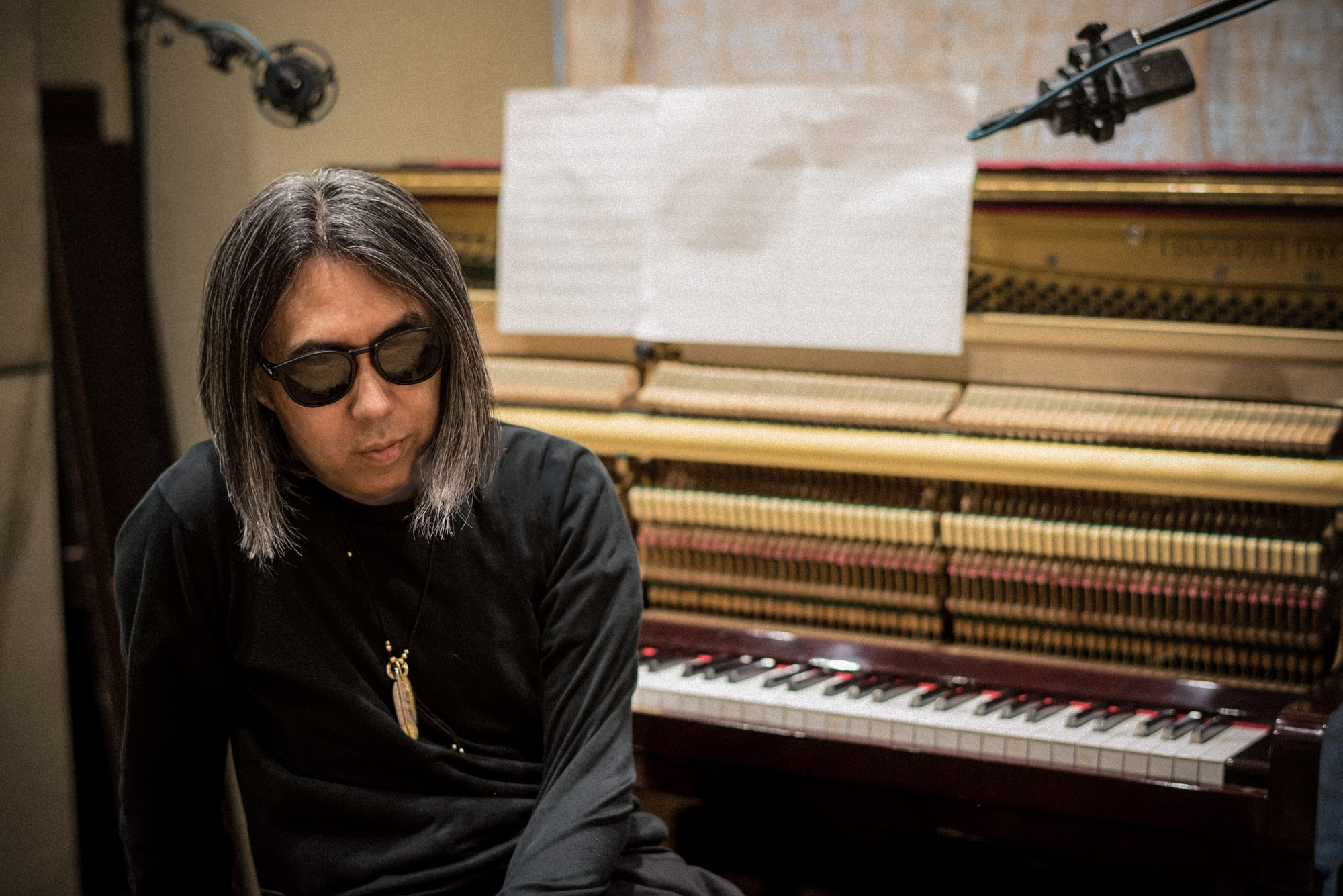
文と写真:梶野彰一
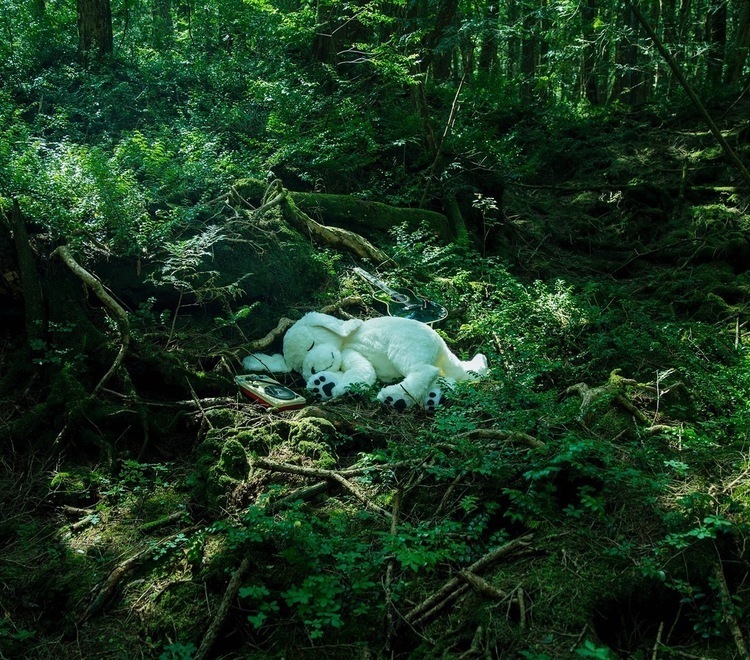
藤原ヒロシ『slumbers』
通常盤(CD)価格:3,024円(税込)VICL-64883
デラックスエディション(CD)価格:4,536円(税込)VIZL-1267
2017年11月29日(水)発売
Hiroshi Fujiwara “WALKING MEN from slumbers” teaser
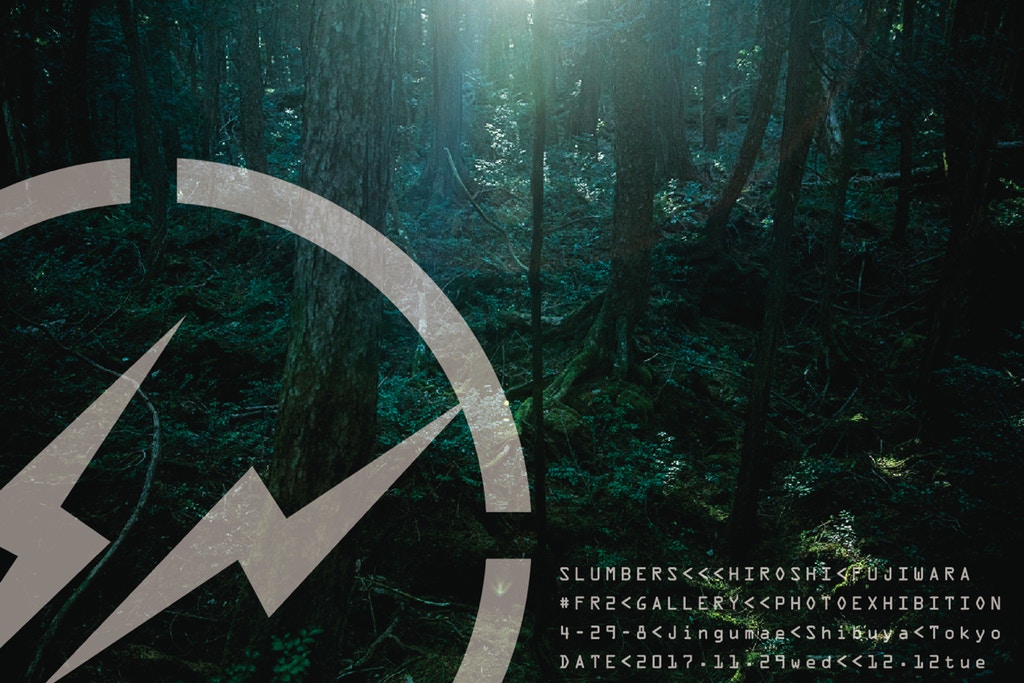
SLUMBERS PHOTO EXHIBITION @ #FR2 Gallery
住所:東京都渋谷区神宮前4-29-8
会期:11月29日(水)~12月12日(火)12:00-19:00


